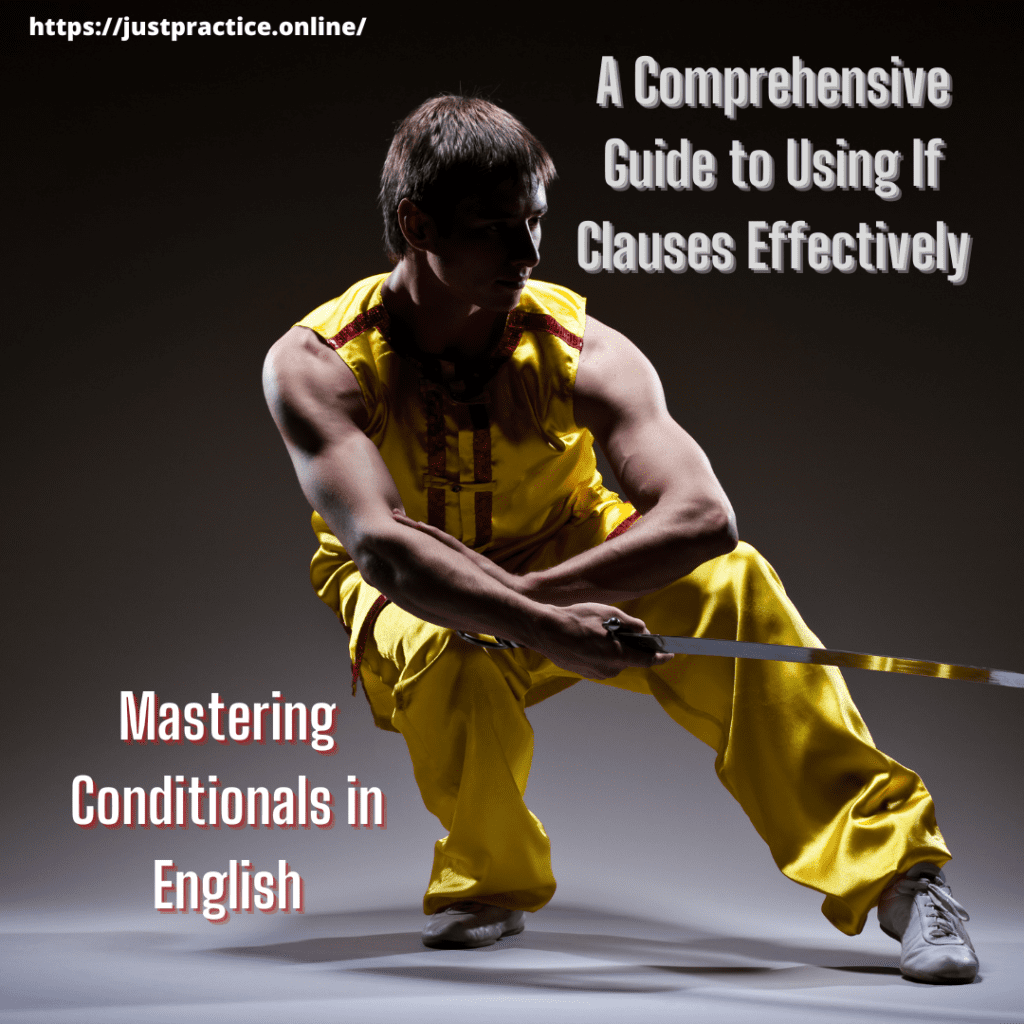
The conditional is an important aspect of English grammar that allows us to express hypothetical or uncertain situations. There are several different types of conditionals in English, each with its own structure and usage. In this article, we will discuss the basics of conditional sentences and how to use them in English.
First, let’s review the basic structure of a conditional sentence. A conditional sentence consists of two parts: the if clause and the main clause. The if clause contains the condition, and the main clause contains the result. Here is an example:
“If it rains, I will stay at home.” (if clause) (main clause)
In this example, the if clause contains the condition (rain), and the main clause contains the result (stay at home).
Now, let’s look at the different types of conditionals and their usage:
- Zero Conditional: This type of conditional is used to describe general truths or facts. It is called the zero conditional because both clauses are in the present tense and the condition is always true. Here is an example:
“If you heat water, it boils.” (if clause) (main clause)
- First Conditional: This type of conditional is used to describe a possible future condition and its result. It is often used to talk about plans, predictions, or promises. Here is an example:
“If it rains tomorrow, we will cancel the picnic.” (if clause) (main clause)
- Second Conditional: This type of conditional is used to describe an unlikely or hypothetical condition and its result. It is often used to express wishes, regrets, or hypothetical situations. Here is an example:
“If I won the lottery, I would travel around the world.” (if clause) (main clause)
- Third Conditional: This type of conditional is used to describe a past condition and its unreal result. It is often used to express regret or to speculate about what might have happened in the past. Here is an example:
“If we had left earlier, we wouldn’t have missed the train.” (if clause) (main clause)
In conclusion, the conditional is an important aspect of English grammar that allows us to express hypothetical or uncertain situations. By understanding the different types of conditionals and their usage, you can improve your English communication skills and express yourself more effectively in a variety of situations. Practice using conditionals in your speaking and writing to become more comfortable with this grammar structure.
One book that can help improve your understanding and usage of conditionals in English is “English Grammar in Use” by Raymond Murphy. This book provides clear explanations and examples of all aspects of English grammar, including the different types of conditionals and how to use them correctly. It also includes exercises and practice activities to help reinforce your learning. Whether you are a beginner or advanced learner, “English Grammar in Use” is a valuable resource for improving your English language skills.